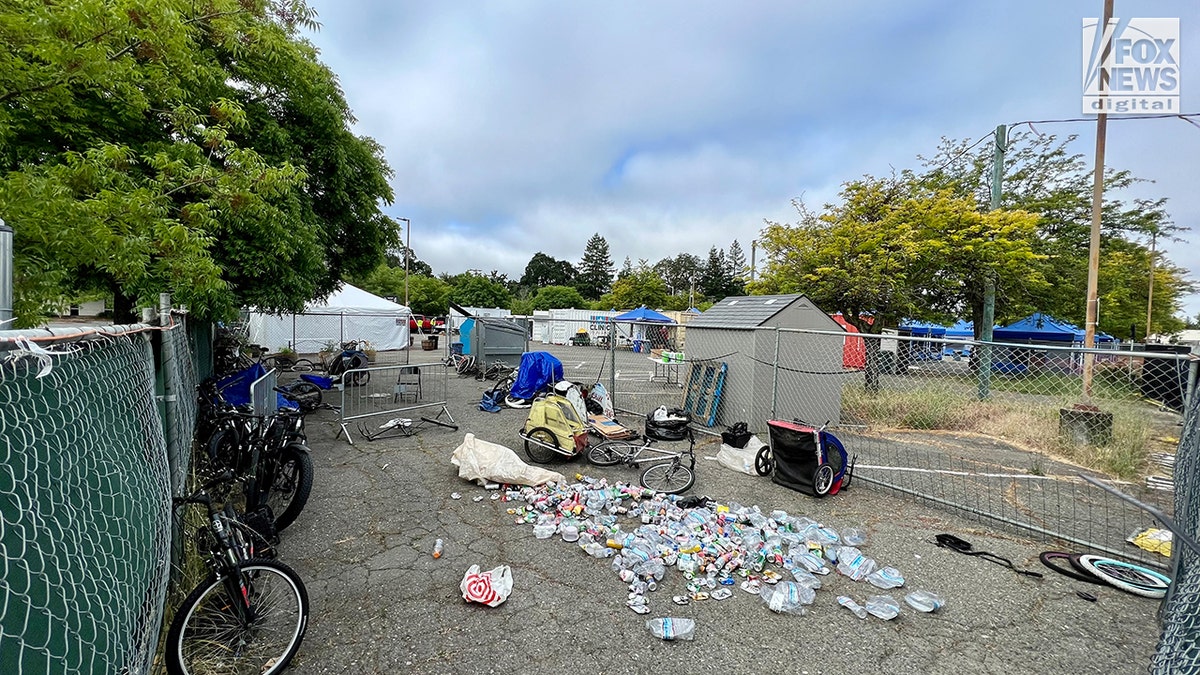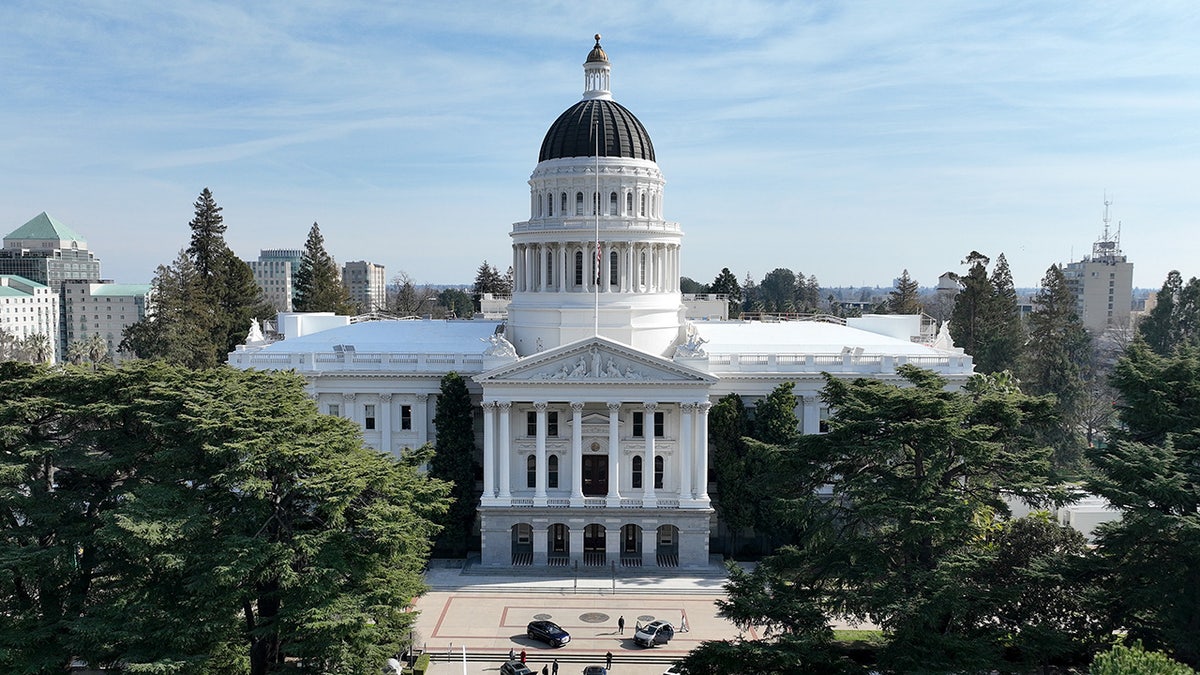California homeless man steals car ending in highway police chase, but good Samaritan declines to press charges
California Highway Patrol catches a homeless hitchhiker in a highway chase, for stealing a car from a good Samaritan who offered to drive him from Bakersfield to Los Angeles County. (KBAK/KCBS)
Newly released federal data reveals that though California has spent over $17 billion to combat homelessness in the last several years, its homeless population has actually increased.
The numbers show that California’s homeless population now accounts for half the homeless population of the entire United States, and that the state is adding more homeless every year than any other state in the country.
CNN spoke to officials on Gov. Gavin Newsom’s, D-Calif., staff and other experts, some of whom insisted the problem would be "so much worse" if it weren’t for the billions the state government has thrown at the problem.
Others told the outlet that rent is just too high in the state for many to afford permanent housing.
CALIFORNIA ACTIVIST CROWDFUNDING MOVE OUT OF SAN FRANCISCO’S ‘ZOMBIE APOCALYPSE’

New federal data reveals that despite California spending over $17 billion to fight homelessness in the last few years, its homeless population has grown. (Fox News Digital)
The CNN report on this federal data opened with the fact that "California has spent a stunning $17.5 billion trying to combat homelessness over just four years. But, in the same time frame, from 2018 to 2022, the state’s homeless population actually grew."
Still, Newsom’s senior adviser on homelessness, Jason Elliott, told the outlet, "The problem would be so much worse, absent these interventions. And that’s not what people want to hear. I get it, we get it."
CNN responded to Elliott’s answer, noting in the piece that "with $17.5 billion, the state could, theoretically, have just paid the rent for every unhoused person in California for those four years, even at the state’s high home costs."
Elliot dismissed the outlet’s point, noting that money doesn’t cover both their housing and mental health treatment. He claimed, "That is reductive … Perhaps that would work for me, because I don’t have significant behavioral health challenges. If two thirds of people on the streets right now are experiencing mental health symptoms, we can’t just pay their rent."
CNN followed up by noting that if 17.5 billion was allocated to house each homeless Californian, it "would leave nearly $4 billion for services like mental health treatment." Though it admitted that even "if California did want to pay rent for every homeless person, there just isn’t enough affordable housing to go around."
Elliott further noted the state needs "2.5 million more" housing units for the state’s homeless, and admitted that’s where the government of California has created a problem.
"This is a problem that is decades and decades in the making because of policy choices that we’ve made. We are not blameless. And when I say we, I mean Republicans and Democrats alike," he declared.
Elsewhere, he added, "It’s frustrating, it’s frustrating … It’s frustrating for us," said Elliott. "At the end of the day if we want to truly solve homelessness in America. We need to build more housing."

California government officials claim they are "facing a tidal wave" when it comes to dealing with homeless people in the state. (Justin Sullivan/Justin Sullivan)
After mentioning the frustrations of the homelessness senior adviser, the CNN report detailed a new report published by UCSF Center for Vulnerable Populations director Dr. Margot Kushel, which analyzed the homeless problem in the state from the mid-1990s to today.
The report dispelled multiple myths about California’s homeless population, the first being that the homeless want to stay on the street. In it, Kushel wrote, "Participants overwhelmingly wanted permanent housing."
Another myth the report dispelled is that other states’ homeless come to live on the streets in California. Kushel corrected that, stating, "nine out of 10 people lost their stable housing here. These are Californians. We have to create the housing for all Californians."
Kushel’s report also questions the myth that "mental illness is the driving force behind homelessness." Even though more than half of the homeless people surveyed in the state have claimed to have symptoms of mental health conditions, Kushel wondered if they exhibit such symptoms after becoming homeless.
"Most of that, half of people, had severe depression or severe anxiety – not surprising if you were experiencing homelessness," she said.
Newsom has mentioned that combating mental health issues is a major front in his administration’s agenda to deal with the homeless, though Kushel told CNN that rent also needs to be lowered.
She stated, "Just tackling the mental health side can’t solve the problem. Not when the median rent is $2,200 for a two-bedroom apartment."
The report acknowledged that the state "does have a plan to build" 2.5 million more homes "by 2030," though Elliott pointed out there is a challenge getting local governments to cooperate. "We’ve got communities in this state that are refusing to build low-income housing. Because they say it’s all just rapists and child molesters. So that’s, that’s, that’s the dynamic that we’re facing, right?"
CLICK HERE TO GET THE FOX NEWS APP
Summing up the issue the state government is dealing with, Elliott told the outlet, "We’re facing a tidal wave and we’re doing the best we can – to mix metaphors a little bit – to paddle out from that and to try to tread water and do as best we can while we try to make the fundamental change necessary both in California and at the national level to truly address homelessness."


